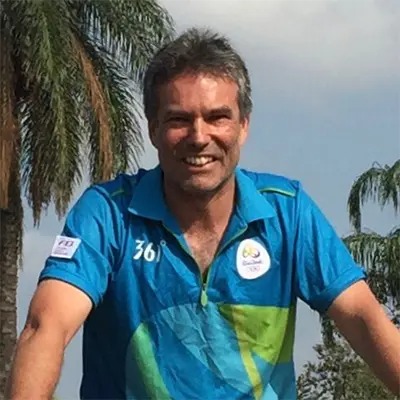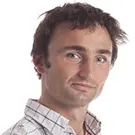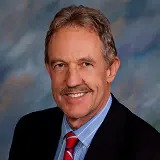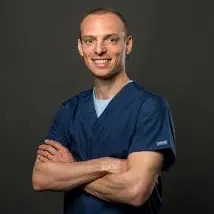Navicular Bursoscopy - What is the cost : benefit ratio?
Species
Equine
Contact Hours
3 Hours - RACE Approval Pending
Language
English
Discipline
Diagnostic Imaging
Orthopaedics
Rehabilitation & Physiotherapy / Physical Therapy
Sports Medicine
Surgery
Veterinary Partner
Equine


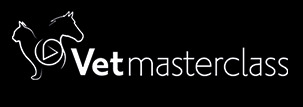
Recorded on: 15th December 2020
Panelists:
Alan NixonBVSc, MS, DACVS – Cornell University, USA
Matt Smith BVetMed, DECVS, DEO, MRCVS – Newmarket Equine Hospital, UK
Bruce Bladon BVM&S, CertEP, DESTS, DECVS, FRCVS – Donnington Grove Veterinary Group, UK
Moderator:
Andy Fiske-Jackson BVSc, MVetMed, FHEA, DECVS, MRCVS – Royal Veterinary College, UK
CONTENT DESCRIPTION
THE RATIONAL & TECHNIQUES
• How does removal of devitalized/degenerate tendon tissue help given poor healing in a synovial environment?
• With a comparable outcome following conservative management vs. bursoscopy, what justifies the expense/risk of surgery?
THE WORK-UP
• Is a positive response to a navicular bursa block a reasonable indication for surgery, or is it only slightly more specific than a coffin joint block, confirming lameness localised somewhere within the foot?
• Should contrast CT (intrathecal or intravenous) be added to the imaging panel to accurately identify bursoscopy candidates?
CASE-SELECTION
• What are the most suitable cases for navicular bursoscopy? Unilateral or bilateral lameness? Mild, moderate or severe lameness?
• Which DDFT tears are most amenable to bursoscopic debridement and result in the best outcomes?
• How frequently do the surgical findings differ from the MRI findings?
• Should every case of navicular bursa sepsis be managed by bursoscopy – Should the “streetnail” procedure be considered malpractice nowadays?
THE OUTCOME
• Does the surgical ability of the surgeon have a significant bearing on outcome?
• Is there anything we can either inject into the bursa or the deep digital flexor tendon to improve the outcome following bursoscopy?
Bruce is the hospital director at Donnington Grove Veterinary Group in Newbury. His interests include colic, arthroscopy and fracture repair. He has been one of the pioneers of surgery in the standing horse, and he is one of the most experienced equine surgeons in the UK. He has lectured and taught around the world on the techniques and results of equine surgery. Bruce is currently President elect of BEVA.
More InfoAndy qualified from the University of Liverpool, UK in 2004. He initially spent three months working for the Society for the Protection of Animals Abroad, a charity caring for working equids, in Morocco. He then spent two years working for a mixed practice doing predominantly farm and equine work. In July 2006 he undertook an eighteen month internship at the Liphook Equine Hospital after which he spent a further six months working as a first opinion equine ambulatory vet for the same practice. In July 2008 he started a residency in equine surgery at the Royal Veterinary College and went on to join the surgical team at the College where he currently works. He became a Diplomate of the European College of Veterinary Surgeons in February 2012. Andy has published several articles in peer reviewed publications and presented at various national and international meetings. His research interests include digital flexor tendon sheath pathology, mesenchymal stem cell application in superficial digital flexor tendonitis and the role of back pain in poor performance.
More InfoDr. Nixon graduated fom the University of Sydney in 1978, practiced for a year and a half, and then completed a residency and research degree in large animal surgery at Colorado State University, leading to board certification in American College of Veterinary Surgeons in 1985. He worked at the University of Florida for 5 years before moving to Cornell University in New York in 1988, where he provided service in clinical orthopedics and neurosurgery, and served as chief of surgery from 2002-2006. He was also director of the Comparative Orthopedics Laboratory and JD Wheat Equine Sports Medicine Laboratory at Cornell University, and was the inaurgural Chief Medical Officer at Cornell Ruffian Equine Specialists, a Cornell owned equine private practice hospital alongside the Belmont racetrack in New York City. Besides his extensive experience in orthopedic surgery, Dr Nixon has a long career in musculoskeletal research, with grant support from numerous external agencies, including The Morris Animal Foundation., Grayson Jockey Club, Quarter Horse Association, The Arthritis Foundation, and the National Institutes of Health, for studies targeting cell and gene therapy for joint disease.
He has over 200 published papers focusing on equine orthopedic disease and surgery, with a particular interest in minimally invasive surgery, cartilage injury and repair, and novel regenerative medicine approaches to joint disease in racing and sport horses. He is also editor and author of two books, Equine Fracture Repair (now in 2nd edition), and Diagnostic and Surgical Arthroscopy of the Horse (in 4th edition). Dr Nixon was inducted into the University of Kentucky Gluck Equine Research Hall of Fame in 2009, and awarded the American College of Veterinary Surgeons, Founders Award for Lifetime Achievement, in 2015.
Dr Nixon retired from Cornell University at the end of 2020, and continues his teaching, research, and clinical roles as an emeritus professor in equine surgery at Cornell, adjunct professor at the University of Florida, and as a consultant to several private practices in the US and abroad. He continues his teaching roles as a faculty member for the AO-Vet Fracture Repair Courses, and as faculty member in Equine Arthroscopy courses in the US and Europe.
More InfoAfter completing his surgical residency, Matt returned to Newmarket to work for the referrals department of Newmarket Equine Hospital in 2006. Matt is interested in all areas of equine surgery, but with particular emphasis on orthopaedic surgery, and more specifically arthroscopy and fracture repair.
Matt has presented on numerous occasions both nationally and internationally, and published his work in peer reviewed scientific journals. He has also taught on post-graduate courses in surgery, fracture repair, diagnostic techniques and arthroscopy. Matt has also maintained an active role in undergraduate teaching, and since 2006 he has held the post of Special Lecturer in Equine Surgery at the School of Veterinary Medicine and Science, University of Nottingham.
More InfoVeterinary Student
Online Panel Discussion
USD 20.00
Qualified Vet
Online Panel Discussion
USD 95.00
Intern/Resident/PhD (Requires proof of status)
Online Panel Discussion
USD 70.00
Vet Nurse/Vet Tech (Requires proof of status)
Online Panel Discussion
USD 70.00
If the options you are looking for are unavailable, please contact us.
No tax will be added unless you are a UK taxpayer
Choose currency at checkout



